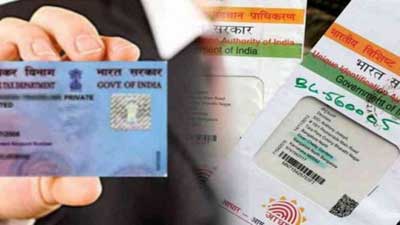Start-up Registration
The government has rolled out a Startup India scheme for the growth of businesses by promoting innovations. The DIPP registration comes with many benefits that startups can leverage by registering a business entity under the StartUp India scheme. This scheme is envisioned at transforming India into a job-provider rather than a job seeker. Only an entity which is registered as a Private Limited Company or a Limited Liability Partnership (LLP) or a Registered Partnership Firm can get recognition under Startup India Scheme. Further, such startup must be involved in the activities towards innovation or improvement in existing products or services, and must be capable of generating employment or wealth creation. Only an eligible entity as per the criteria provided by the government can take registration under the said scheme by applying online via Mobile Application or through portal set up by DIPP.
ADVANTAGES
SELF CERTIFICATION UNDER LABOR AND ENVIRONMENTAL LAWS
Startups are allowed to self certify their compliance under six labor laws and three environment laws. This is allowed for a period of five years from the date of incorporation of the entity. Furthermore, such a benefit is given in order to reduce the regulatory burden for startups so that they can focus on their core business and keep compliance costs low.
TAX EXEMPTION FOR THREE YEARS
The profits earned by the recognized startups having granted inter ministerial board certificate are exempted from income tax for three consecutive years. Such an exemption is given to facilitate business growth as well as cater to the working capital requirements during the initial years.
EASY WINDING UP OF COMPANY
Startups also known as fast track firms can be wound up within 90 days as against 180 days for other companies. Further, an insolvency professional shall be appointed for liquidating the assets and paying creditors. This would be done within six months of filing an application to make such an exit.
SIDBI FUND OF FUNDS
The government of India has set aside a corpus fund of Rs. 10,000 crore. This fund is managed by SIDBI and is intended to provide equity funding support for the development and growth of innovation driven enterprises. The nature of such a corpus is fund of funds. This means that the government contributes towards the capital of SEBI registered funds. These funds further invest in startups.
Get Expert Assistance
Start-up Registration
Documents Required
Company/Firm Registration Certificate..
MOA and AOA of the Company
PAN of the Company
Aadhar of Directors
PAN of Directors
Mobile Number
Email id
Business Plan
Office Address Proof

Registered Office Proof
Register office of all companies must be in India .If it is a Rented Property, Rent agreement and NOC from a landlord. If it is a Self-owned Property, Electricity bill or any other address proof.
Documents submitted must be valid and not more than 2 month old.

ELIGIBILITY

- The start-up must be registered as a Private Company, LLP or Partnership Firm
- It should be a new firm or not older than five years, and the total turnover of the company should be not exceeding 25 crores .
- The firms should have obtained the approval from the Department of Industrial Policy and Promotion (DIPP).
- To get approval from DIPP, the firm should be funded by an Incubation fund, Angel Fund or Private Equity Fund.
- The firm should have obtained a patron guarantee from the Indian patent and Trademark Office.
- It must have a recommendation letter by an incubation .
- Capital gain is exempted from income tax under the startup India campaign.
- The firm must provide innovative schemes or products.
- The start-up must not be a product of restructuring, The business must be involved in a new product or service
Process
FIRST STEP
The First Step Is Incorporation And For That You Can Choose For Your Company To Be Incorporated As A Private Limited Company.
- Gather All The Necessary Documents Required For Private Company Registration
- You First Need To File For DIN And DSC
- Then, You Need To Apply For Name Approval Using The RUN Form.
- Now, The Drafting Of AOA And MOA Are To Be Done.
- All Of This Information Will Then Be Accumulated In The Spice Form.
- The Form Is Then Submitted Online Along With The Required Fees.
- If Your Details Are Correct, You Will Get A Certificate Of Incorporation.
INCORPORATED YOUR COMPANY
Now That You Have Incorporated Your Company, You Need To Register It With The Start-Up India Initiative.
SELF CERTIFICATION
Provide A Self Certification That You Satisfy With The Conditions Pertaining To Start-Ups.
START-UP COMPANY
You Will Then Be Awarded A Recognition Number And Your Start-Up Company Will Be Registered.
FREQUENTLY ASKED QUESTIONS
Startup India Hub is a one-stop platform for all stakeholders in the Startup ecosystem to interact amongst each other, exchange knowledge and form successful partnerships in a highly dynamic environment.
No. Once the company is formed, it will be valid till it is officially closed down by the owners. No renewal or fees is required. However, every year companies have to file very basic returns with ROC office.
Investing in startups is a risky proposition, but the low requirement for overhead capital combined with high upside potential, makes it lucrative for investors to put their bets on startups.
The Thomson Reuters Venture Capital Research Index replicated the performance of venture capital industry in 2012 and found that overall venture capital has returned at an annual rate of 20% since 1996 – far outperforming modest returns of 7.5% and 5.9% from public equities and bonds respectively.
Any entity having atleast one registered office in India is welcome to register on the hub as location preferences, for the time being are only created for Indian states. However, we are working on international relations and will soon be able to enable registration for stakeholders from the global ecosystem.
Yes. An entity without a PAN can be registered as a Startup. However, it is advised that a valid PAN of the entity is provided at the time of registration, as each entity is separately taxable person.
It is advised that only one mobile number of the authorized representative of the entity is provided at the time of registration. The portal and the mobile app would be sending an OTP on the mobile number provided for the user to complete authentication and registration process
Yes. On successful registration, you would be able to download a system generated verifiable certificate of recognition.
No. The application has to be submitted online only.
